Extended Income Tax Payment Relief due to COVID-19
On March 18, 2020, the IRS released Notice 2020-17. This notice officially provides relief to taxpayers during the COVID-19 pandemic by extending the original April 15, 2020 income tax payment deadline to July 15, 2020. Treasury Secretary Mnuchin informally announced the extended tax payment deadline on March 17 in response to President Trump’s March 13 emergency declaration and instruction that the Secretary of the Treasury “provide relief from tax deadlines to those Americans who have been adversely affected by the COVID-19, as appropriate, pursuant to 26 U.S.C. 7508A(a).”
The July 15, 2020 extended income tax payment deadline relief applies to any “Affected Taxpayer.” The notice further clarifies that “any person” (including individuals, trusts, estates, partnerships, association, companies or corporations) with a Federal Income tax payment due April 15, 2020 is a taxpayer affected by the COVID-19 virus.
It is important to note two things about this relief. First, the relief is solely available for federal income tax payments. This includes income tax payments due with the timely filing of an income tax return, and federal estimated income tax payments (including tax payments on self-employment income) due on April 15, 2020. Taxpayers who are already delinquent on estimated taxes for previous quarters will not be granted late payment relief for those estimated taxes under this Notice. Additionally, no extension is provided in the notice for the payment or deposit of any other type of federal tax. Second, there are limits on the maximum amount of the payments that can be postponed, and these limit amounts vary depending on the classification of the “Affected Taxpayer.” For individuals, the applicable postponed payment amount is up to $1,000,000. For consolidated groups and for each C Corporation that does not join in filing a consolidated return, payments up to $10,000,000 can be postponed.
During the period of April 15, 2020 to July 15, 2020, no penalties, interest or addition to tax for failure to pay tax will be assessed against applicable taxpayers. However, interest, penalties and additions to tax will accrue, without any suspension or deferral, on the amount of any federal income tax payments in excess of the allowable maximum deferral amount listed above. On July 16, 2020, interest, penalties and additions to tax will begin to accrue on unpaid amounts that are within the threshold limits. Reasonable cause relief may be available to taxpayers who are unable to make federal income tax payments by the July 15, 2020 extended deadline. Reasonable cause relief is also available for the penalties assessed on the amounts above the threshold beginning on April 15, 2020. Please note that reasonable cause relief is not ordinarily available for estimated tax payments. However, individuals may be entitled to relief based on casualty, disaster or unusual circumstances where imposition of the penalty would be against equity and good conscience. Corporations may obtain relief only if they file Form 2220 showing a recalculation of the penalty based on meeting the quarterly required payments.
At this time, the IRS has not provided relief in the form of an extended filing deadline for taxpayers with a tax return due April 15, 2020. Because the filing deadline has not been extended, we are strongly encouraging taxpayers to file an automatic extension of time to file business or individual tax returns (Form 7004 for corporations and Form 4868 for individuals) on or before April 15, 2020. When filing for an extension, taxpayers are required to make a proper estimate of tax due and state that estimate on the applicable Form to request an automatic extension. The payment of the income tax identified on the extension request will be deferred under this relief (provided the taxpayer is within the limits for the amount of federal income tax due under the provided relief). For example, the extension will be still be valid for corporations that do not make a payment with extension if the unpaid tax is $10,000,000 or less.
Passthrough entities should be cognizant of existing agreements with owners regarding the timing of tax distribution payments and delivery of schedules K-1. If those agreements would require a payment or delivery despite this new guidance, those entities may need to revisit that issue with their owners.
A final reminder that this relief applies only to federal income tax and estimated income tax payments due on April 15, 2020. State returns and payments are not covered by this relief. Taxpayers should coordinate with their tax advisors to address any state and local tax payment and filing requirements.
This content was used with permission from RSM US.





